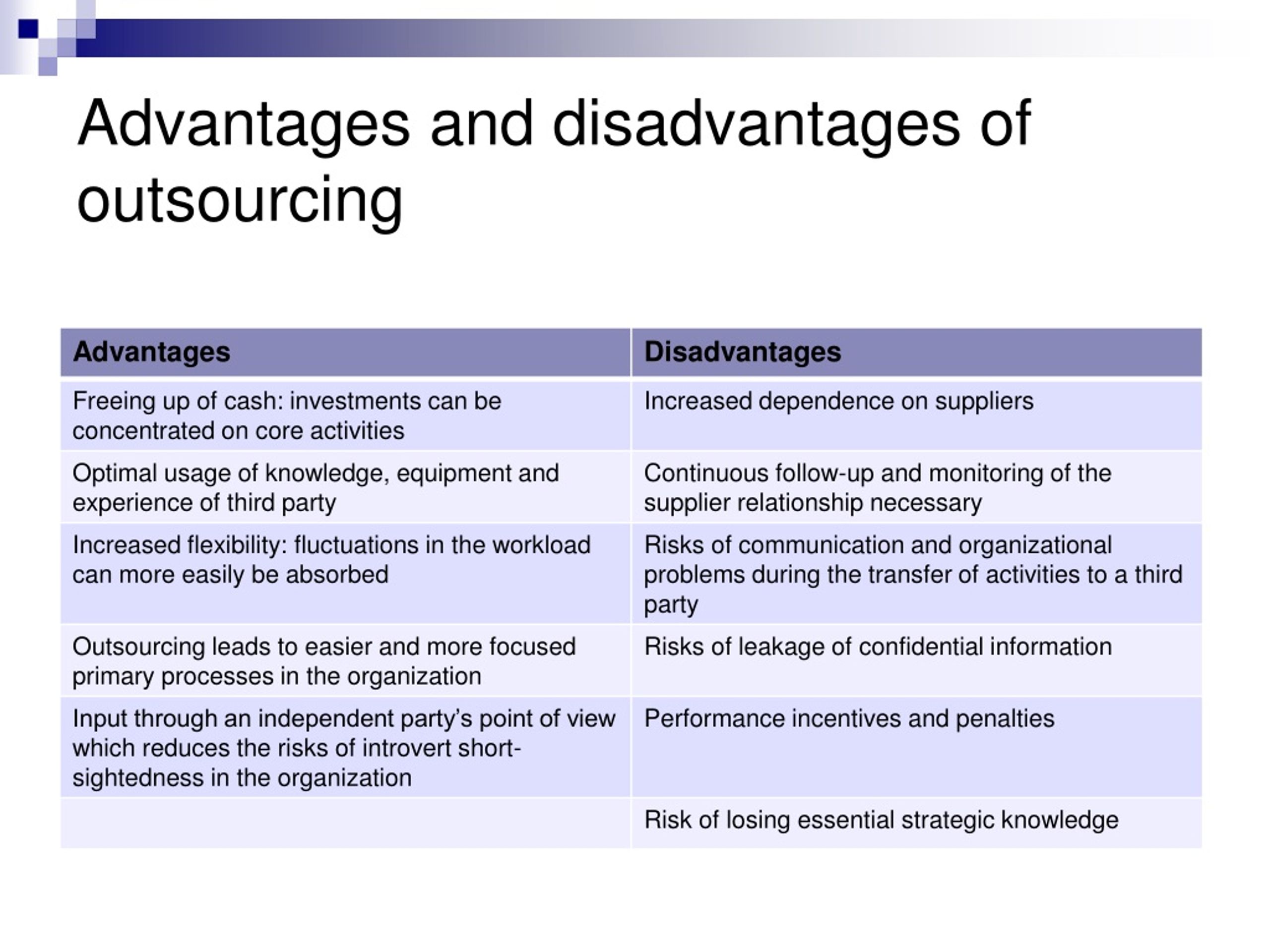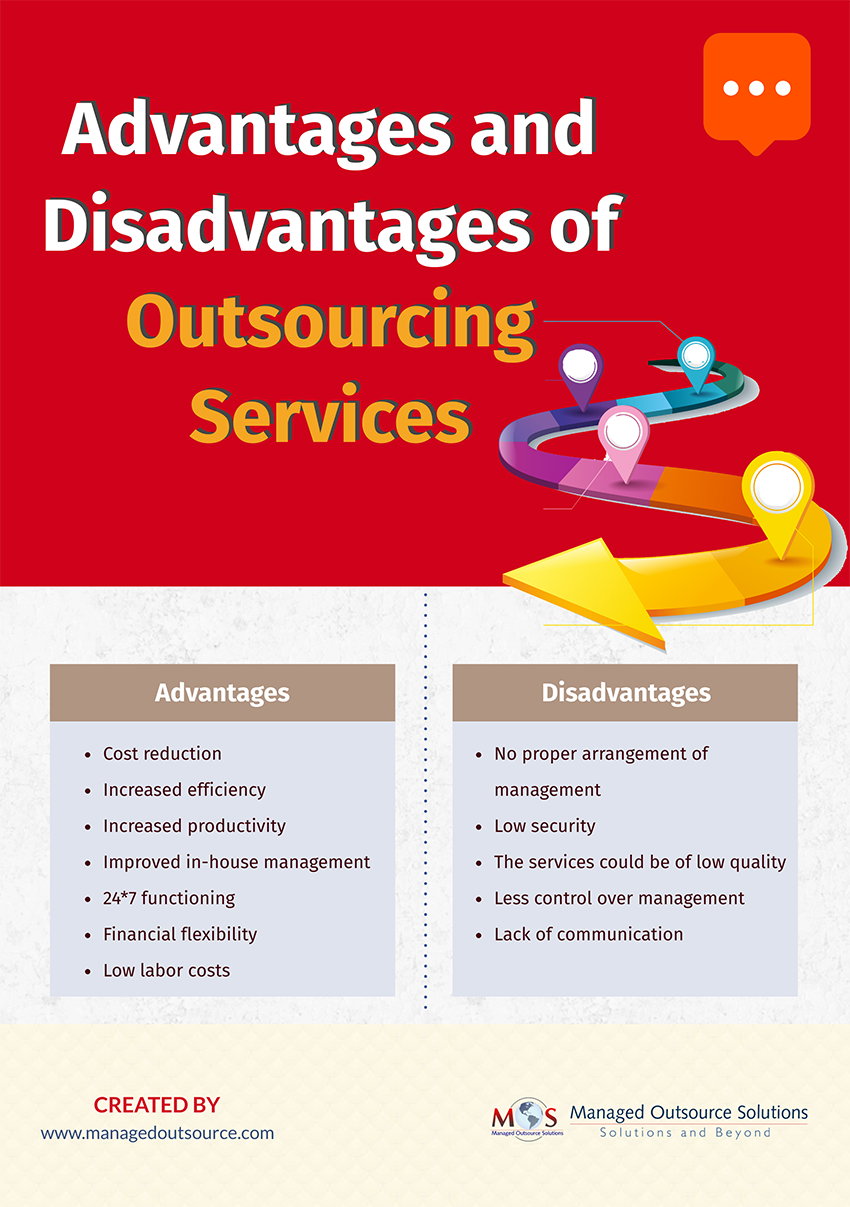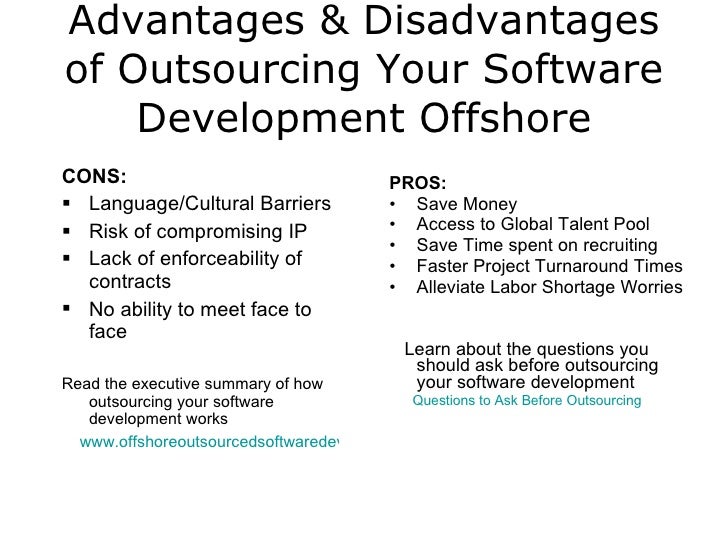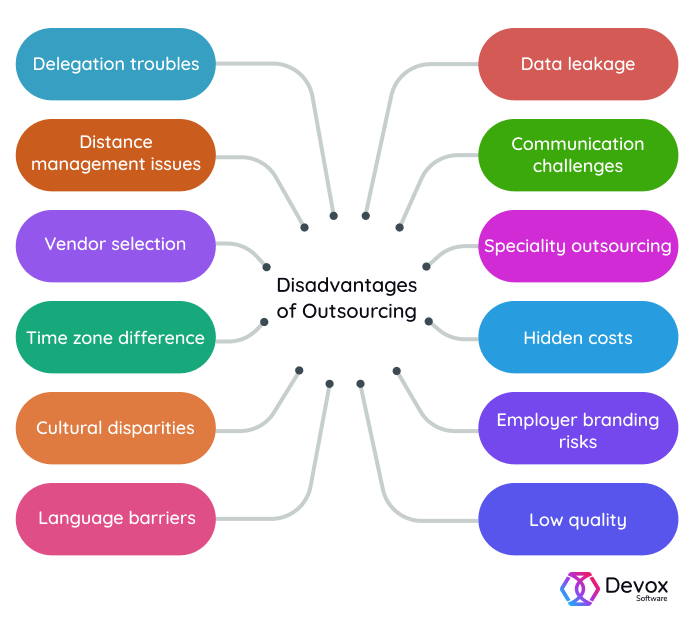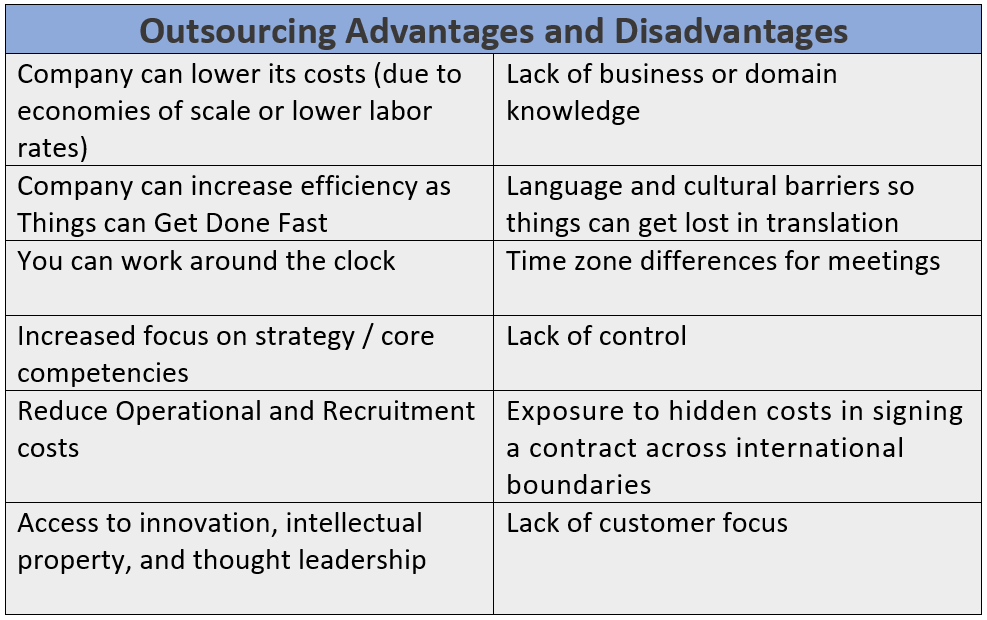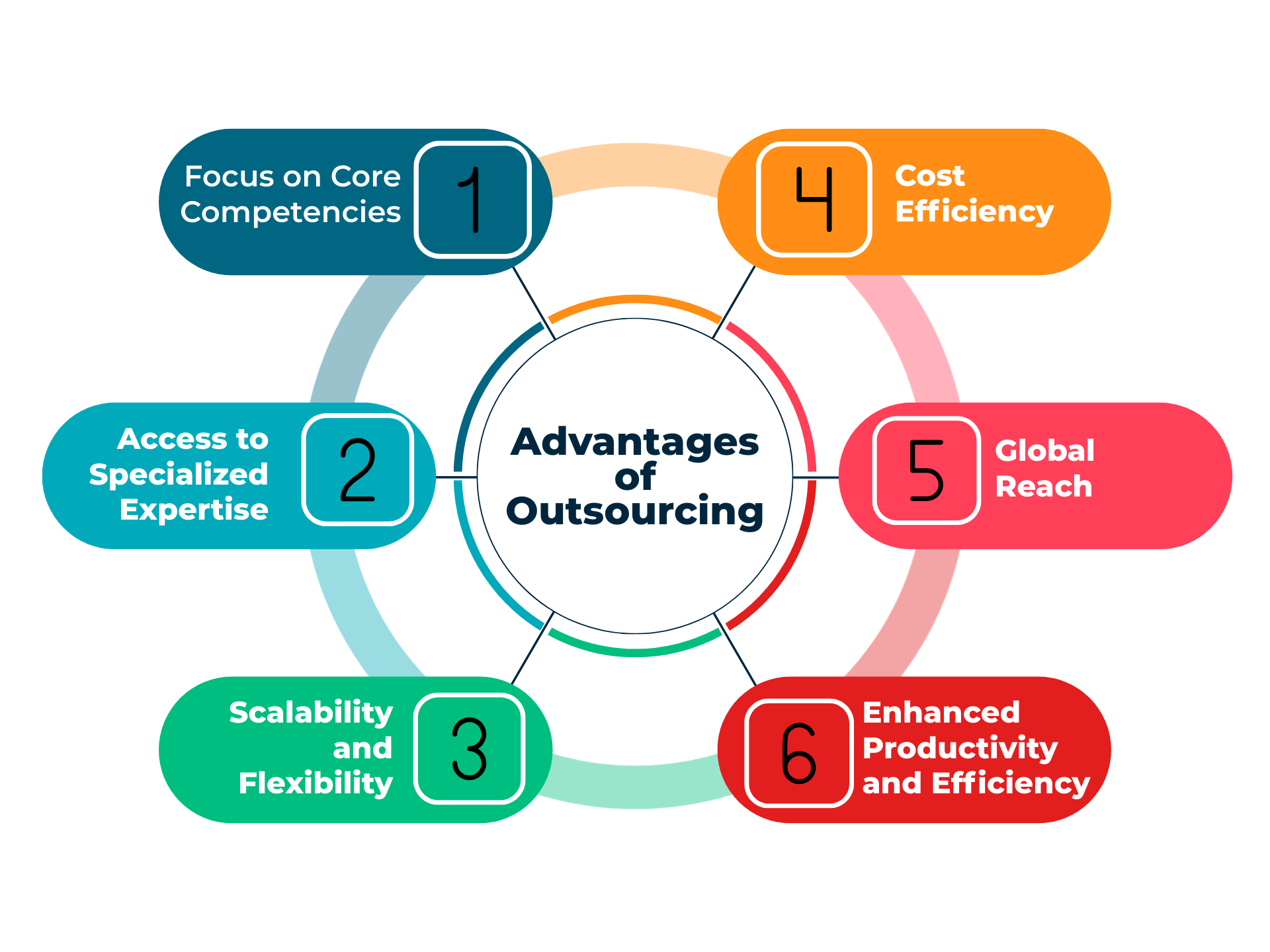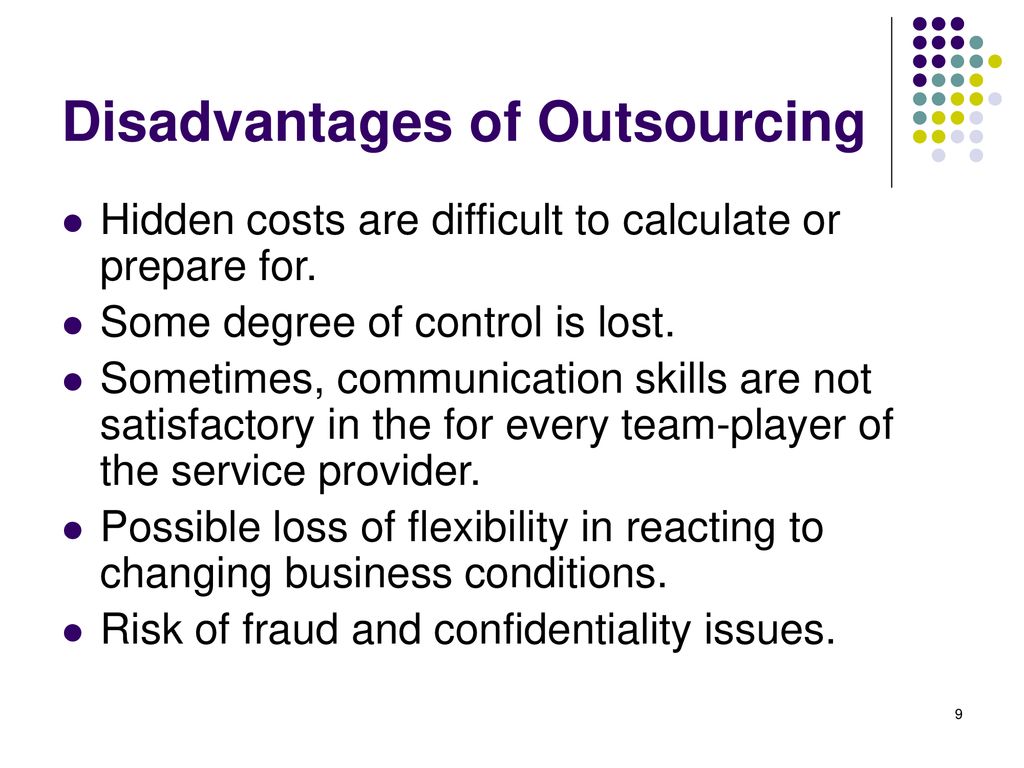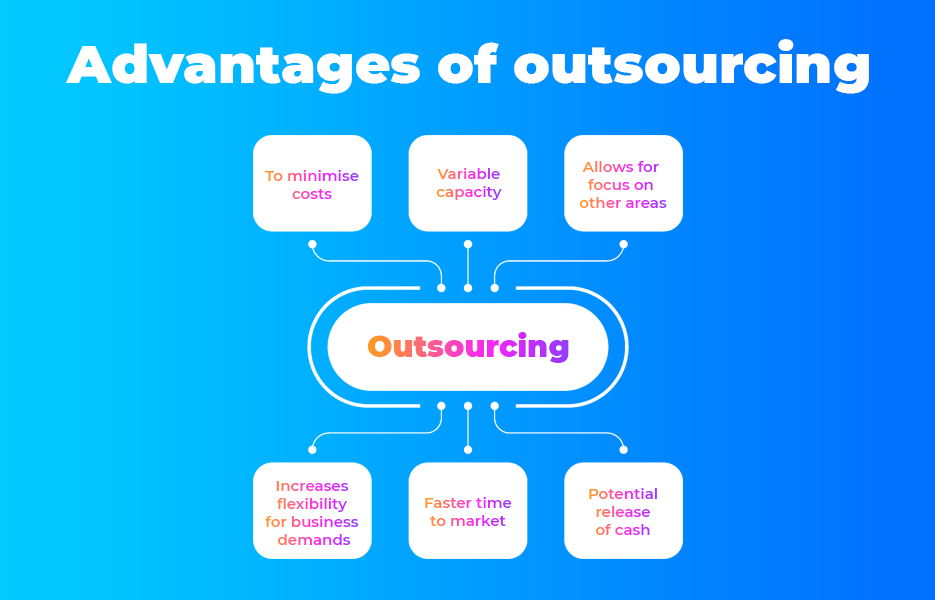Advantages And Disadvantages Of Outsourcing
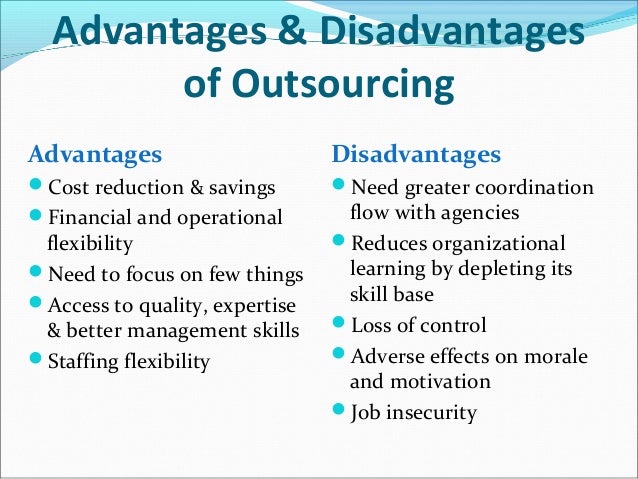
In an increasingly interconnected global economy, the practice of outsourcing has become a common strategy for businesses seeking to optimize operations and reduce costs. Outsourcing, the delegation of specific business processes to external providers, presents both opportunities and challenges for companies, workers, and economies alike. Understanding these advantages and disadvantages is crucial for informed decision-making in today's business environment.
At its core, outsourcing is about efficiency and specialization. Companies choose to outsource tasks that are not considered core competencies, allowing them to focus on their strengths and innovate in their primary areas of expertise. This article examines the multifaceted aspects of outsourcing, drawing on industry reports and expert opinions to provide a balanced perspective.
The Allure of Outsourcing: Cost Savings and Efficiency
One of the most compelling reasons companies outsource is the potential for significant cost reduction. According to a Deloitte survey, cost reduction remains a primary driver for outsourcing decisions, cited by over 70% of respondents. By leveraging lower labor costs in other countries or utilizing specialized expertise from external providers, businesses can reduce overhead and improve their bottom line.
Outsourcing can also lead to increased efficiency and productivity. External providers often have specialized tools, processes, and expertise that may not be available internally. This can result in faster turnaround times, higher quality output, and improved overall operational performance.
Furthermore, outsourcing offers businesses increased flexibility and scalability. Companies can easily scale their operations up or down as needed, without the burden of hiring and training additional staff or investing in new infrastructure. This agility is particularly valuable in dynamic markets where demand fluctuates rapidly.
The Shadow Side: Risks and Concerns
While outsourcing offers numerous advantages, it also presents several potential risks and concerns. One of the most significant challenges is the potential loss of control and oversight. When a business process is outsourced, the company relinquishes direct control over how that process is executed.
Communication barriers, cultural differences, and time zone differences can also hinder effective collaboration and lead to misunderstandings. This can result in delays, errors, and ultimately, dissatisfaction.
Another key concern is the potential for data security breaches and intellectual property theft. When sensitive information is shared with external providers, there is always a risk that it could be compromised. Companies must carefully vet their outsourcing partners and implement robust security measures to mitigate this risk.
Impact on the Workforce
The impact of outsourcing on the domestic workforce is a contentious issue. While outsourcing can create new jobs in other countries, it can also lead to job losses in the home country. This can have a significant impact on workers, their families, and the local economy.
Some argue that outsourcing allows companies to become more competitive, which ultimately benefits the overall economy. Others contend that it leads to a race to the bottom, with companies constantly seeking to reduce labor costs at the expense of domestic workers.
According to the Economic Policy Institute, the effects of outsourcing have contributed to wage stagnation for many U.S. workers. The reality is that, in the short term, outsourcing can create economic hardship in specific sectors.
Navigating the Outsourcing Landscape
To effectively navigate the outsourcing landscape, companies must carefully weigh the potential advantages and disadvantages. A thorough risk assessment is essential, including evaluating the potential impact on data security, intellectual property, and the workforce.
Choosing the right outsourcing partner is also critical. Companies should look for providers with a proven track record, strong security protocols, and a commitment to quality and compliance. Furthermore, clear communication channels and well-defined service level agreements are essential for ensuring a successful outsourcing relationship.
In conclusion, outsourcing is a complex and multifaceted strategy with both significant potential benefits and inherent risks. By carefully considering the advantages and disadvantages, and by implementing appropriate safeguards, companies can leverage outsourcing to improve efficiency, reduce costs, and enhance their competitive advantage. However, the social and economic impacts, particularly on domestic workforces, must be carefully managed to ensure a more equitable and sustainable global economy.

